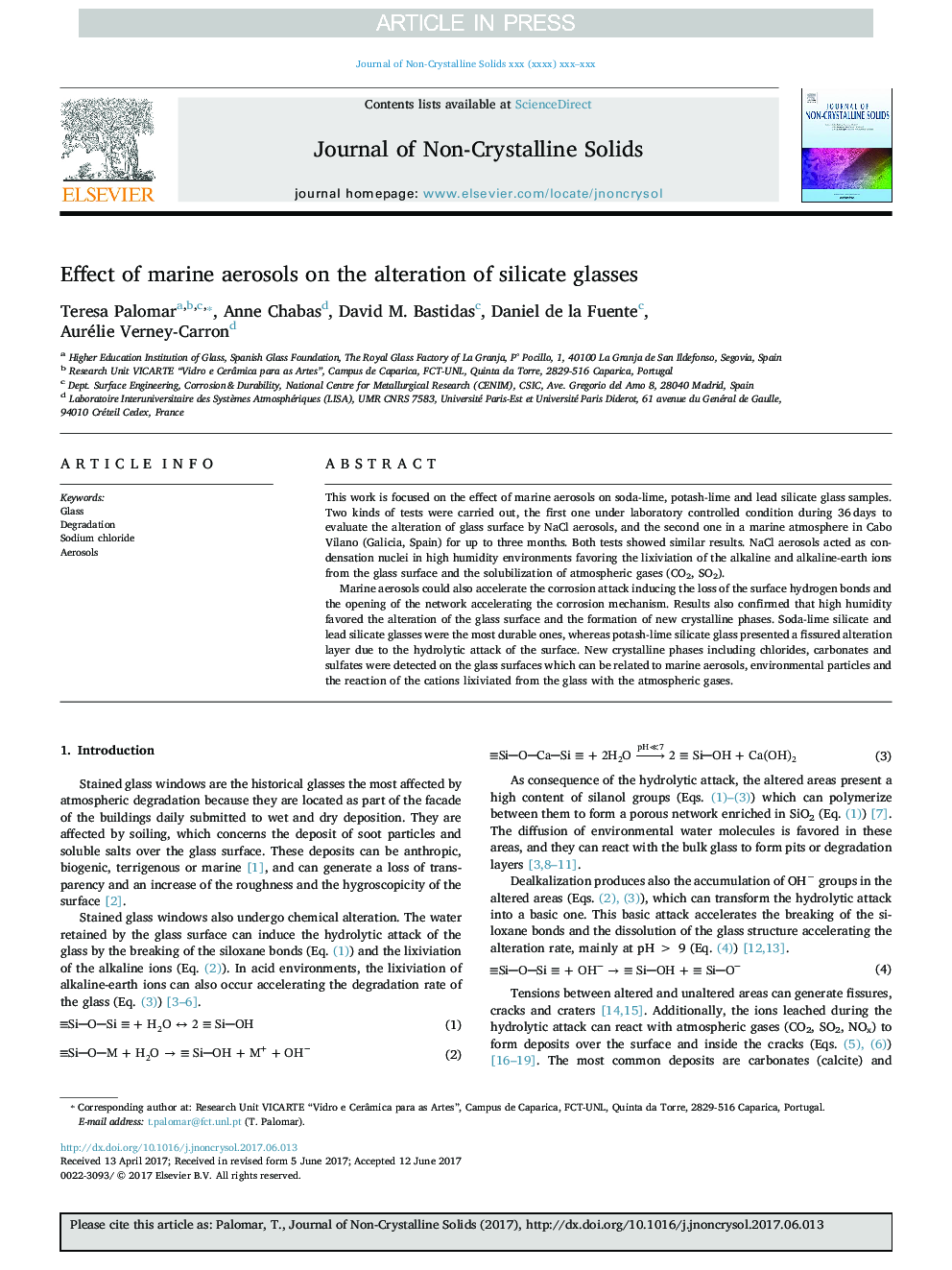| Article ID | Journal | Published Year | Pages | File Type |
|---|---|---|---|---|
| 5441097 | Journal of Non-Crystalline Solids | 2017 | 10 Pages |
Abstract
Marine aerosols could also accelerate the corrosion attack inducing the loss of the surface hydrogen bonds and the opening of the network accelerating the corrosion mechanism. Results also confirmed that high humidity favored the alteration of the glass surface and the formation of new crystalline phases. Soda-lime silicate and lead silicate glasses were the most durable ones, whereas potash-lime silicate glass presented a fissured alteration layer due to the hydrolytic attack of the surface. New crystalline phases including chlorides, carbonates and sulfates were detected on the glass surfaces which can be related to marine aerosols, environmental particles and the reaction of the cations lixiviated from the glass with the atmospheric gases.
Related Topics
Physical Sciences and Engineering
Materials Science
Ceramics and Composites
Authors
Teresa Palomar, Anne Chabas, David M. Bastidas, Daniel de la Fuente, Aurélie Verney-Carron,
